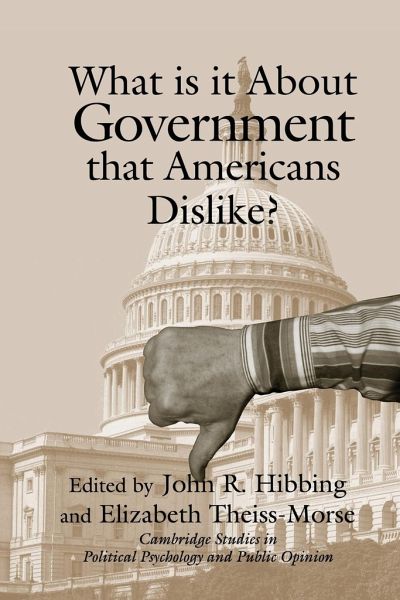
What Is It about Government That Americans Dislike?
Versandkostenfrei!
Versandfertig in 1-2 Wochen
35,99 €
inkl. MwSt.

PAYBACK Punkte
18 °P sammeln!
What Is It about Government That Americans Dislike?


Rechnungen
Bestellstatus
Retourenschein
Storno